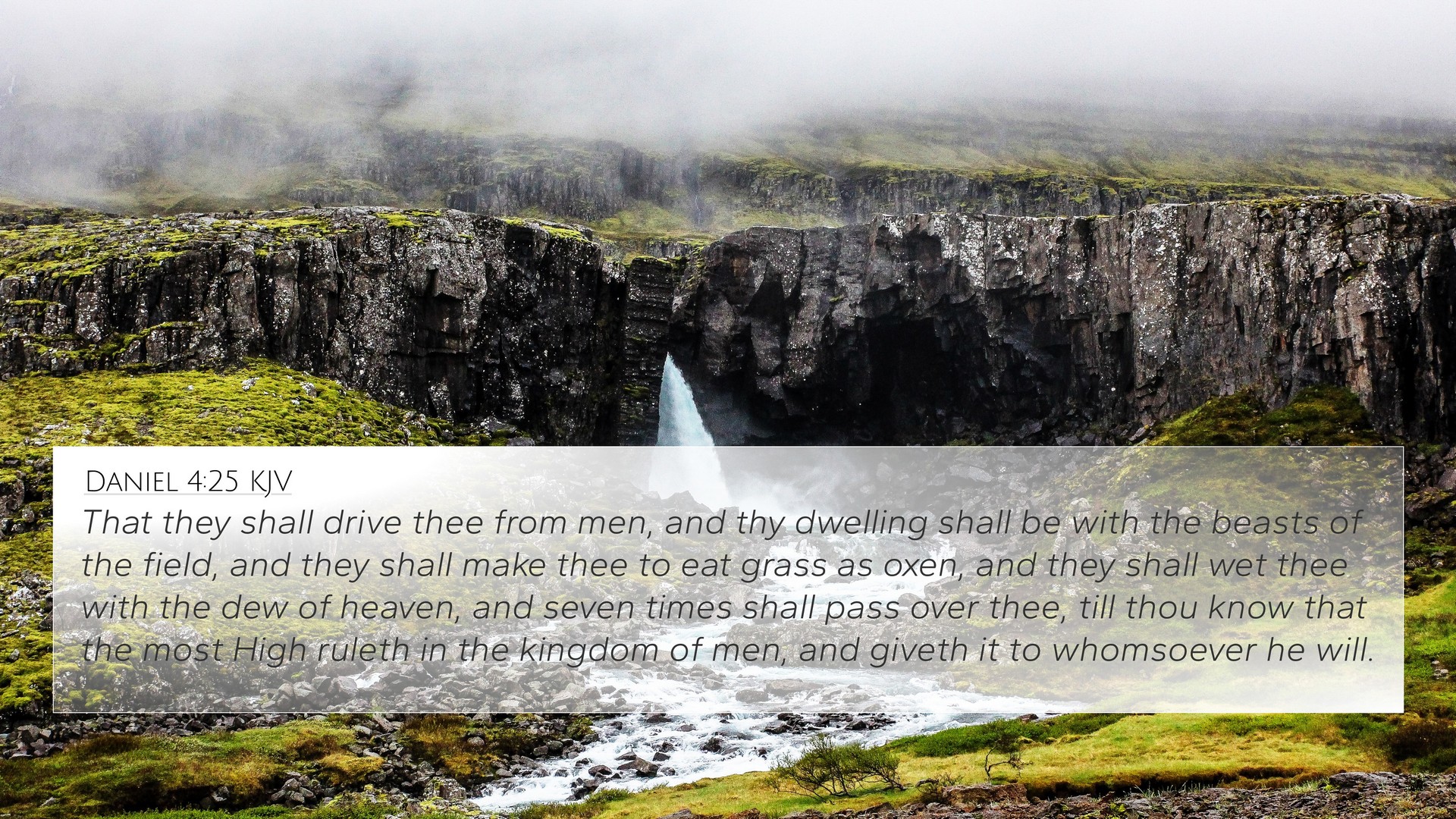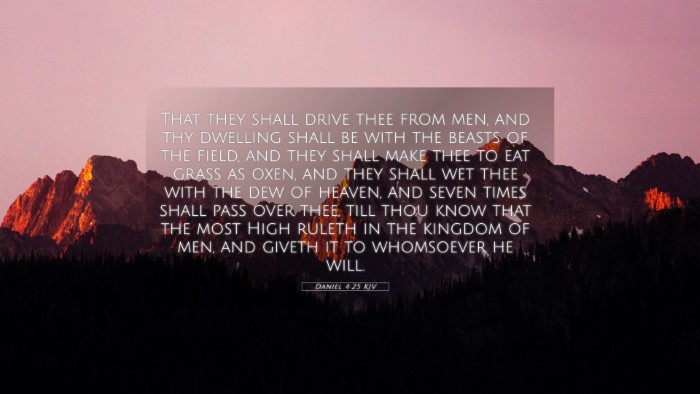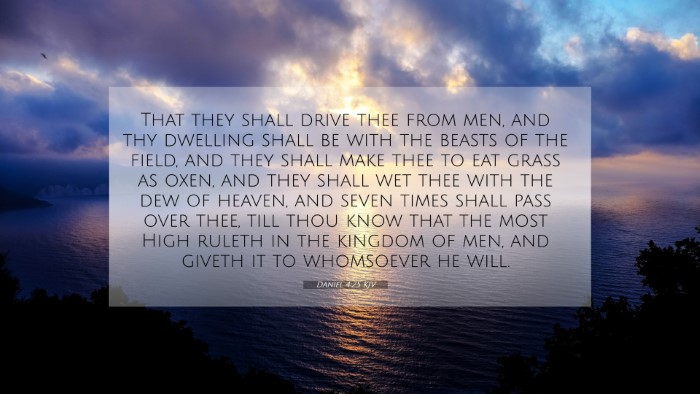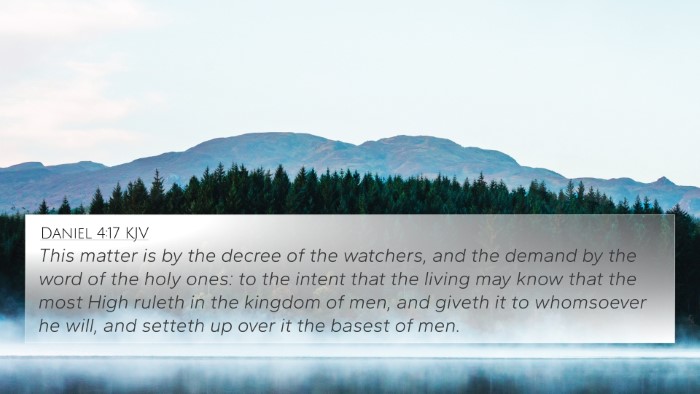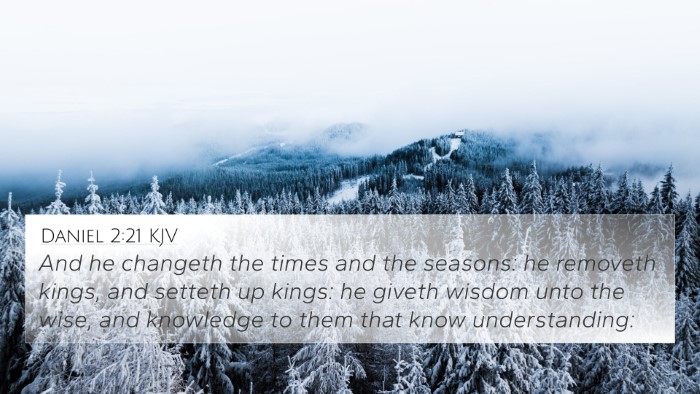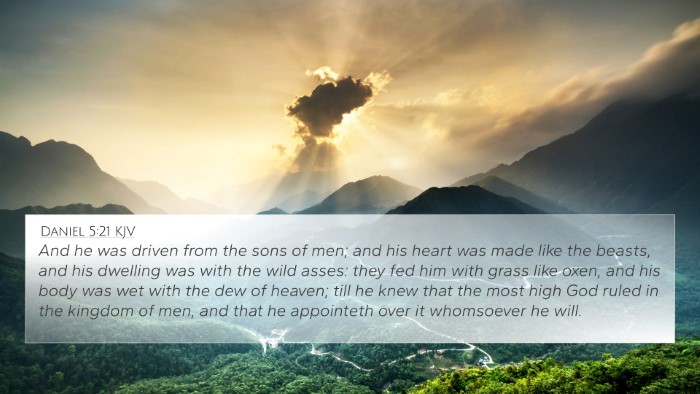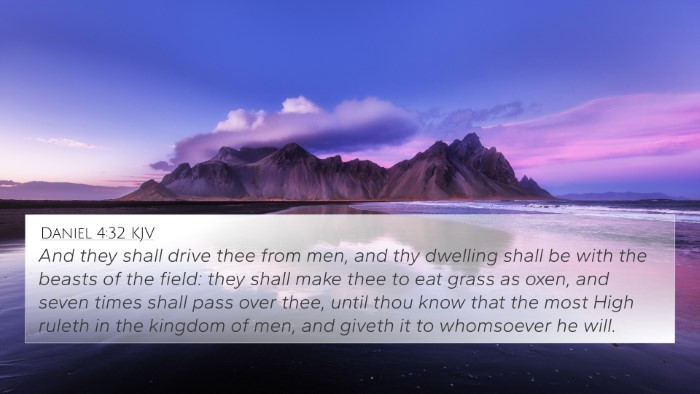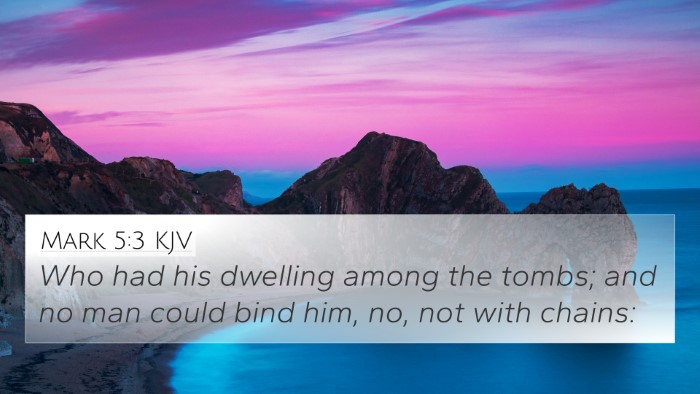Understanding Daniel 4:25
Verse: "That they shall drive thee from men, and thy dwelling shall be with the beasts of the field, and they shall make thee to eat grass as oxen, and seven times shall pass over thee, till thou know that the most High ruleth in the kingdom of men, and giveth it to whomsoever he will." (Daniel 4:25)
Summary of Meaning
This verse is part of a larger narrative within the Book of Daniel, where King Nebuchadnezzar is warned through a dream about his impending judgment due to pride and arrogance. The central message is a reminder of God's sovereignty over earthly kingdoms and the consequences of human pride.
Commentary Insights
- Matthew Henry: Henry emphasizes the dramatic transformation that God enacts on Nebuchadnezzar as a divine punishment, serving to illustrate the theme of God's supreme authority. The interpretation of "seven times" is often viewed as a period of judgment, during which the king will come to understand the necessity of humility before God.
- Albert Barnes: Barnes notes the significance of this decree as a warning to all who might think themselves above God's law. He highlights the symbolism in the imagery of living among beasts, which reflects a loss of reason and dignity, indicating how sin can lead to dehumanization.
- Adam Clarke: Clarke considers the psychological and spiritual implications of Nebuchadnezzar's plight. He connects this event with the overarching theme of repentance and restoration, noting that God does not abandon His creations but rather seeks their return to understanding and virtue.
Related Bible Cross-References
- Proverbs 16:5: "Everyone who is arrogant in heart is an abomination to the Lord; be assured, he will not go unpunished." - This verse complements the theme of the consequences of pride.
- Isaiah 14:13-15: The fall of Lucifer is paralleled to the fall of Nebuchadnezzar, illustrating the fate of the proud.
- James 4:6: "But he gives more grace. Therefore it says, 'God opposes the proud but gives grace to the humble.'" - A clear connection to God's view on pride vs. humility.
- Luke 1:52: "He has brought down the mighty from their thrones and exalted those of humble estate." - This verse reinforces the reversal of fortunes that comes with God's justice.
- Psalm 75:6-7: "For not from the east or from the west and not from the wilderness comes lifting up, but it is God who executes judgment, putting down one and lifting up another." - Affirming God's authority in governance and judgment.
- Daniel 2:21: "He changes times and seasons; he removes kings and sets up kings..." - Similar themes of God's sovereignty over earthly kingdoms.
- Exodus 10:3: A reminder of the consequences faced by Pharaoh, further illustrating God’s will against proud rulers.
Thematic Connections
The theme of God’s Sovereignty is prevalent throughout the Bible, depicted through various narratives that illustrate human pride leading to downfall. This connects to the broader narrative within the Old Testament, where many rulers, including Pharaoh and others, faced dire consequences due to their refusal to acknowledge God's authority.
Cross-Referencing Insights
Cross-referencing biblical texts allows deeper understanding of how themes of pride, humility, and divine authority interlink:
- Tools for Bible Cross-Referencing: Utilizing a bible concordance can help locate themes related to judgment and humility.
- Bible Cross-Reference Guide: Using chapter and verse can facilitate thematic studies, especially when examining how different biblical figures respond to divine authority.
- Comprehensive Bible Cross-Reference Materials: Engaging with these materials can enhance the study of passages that resonate with Daniel 4:25, fostering a deeper understanding of biblical principles.
- How to Use Bible Cross-References: Identifying connections between the Old and New Testament can deepen one’s study, revealing consistent themes of humility.
Conclusion
In summary, Daniel 4:25 serves as a powerful reminder of God’s authority and the perils of pride. Through cross-referencing with other biblical texts, believers can see the rich tapestry of God’s message throughout scripture, underscoring that true wisdom lies in humility and recognition of divine sovereignty.
